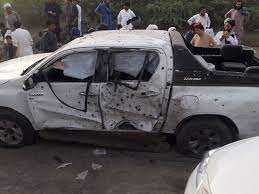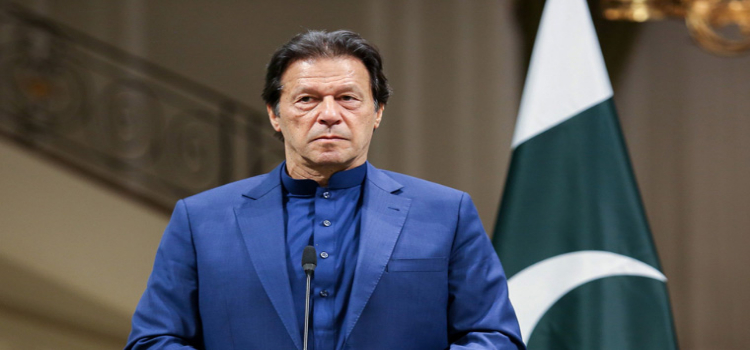Prime Minister Imran Khan in his address to the International Fund for Agricultural Development on Wednesday highlighted the issue of food insecurity among other challenges the world is faced inthe backdrop of the COVID-19 pandemic.
“Over 20 countries are food insecure. The World Food Programme has warned of famine in the world’s poorest countries and conflict zone,” he said.
PM Khan added that the world stood at the precipice of massive food scarcity and not much has been done to make a viable recovery to ensure the achievement of vital sustainable goals of ending poverty and eliminating hunger.
The is lack of financing, shortage of investment, trade distortions, unsustainable and consumption patterns, degradation of agricultural land and forest, an impending water crisis, loss of biodiversity, and polluted rivers and oceans, he said.
“We need a revolution and a vision for the future. The COVID-19 pandemic and the climate crisis should drive home the message to all — rich and poor and weak or powerful — that we will perish or survive together,” the premier said.
PM Imran Khan noted that the concepts of geostrategic adversaries of regional or global domination, of the political advantages of foreign intervention and occupation, and the oppression of people are outdated and will be soon seen as irrelevant.
We need a common global plan for the survival and prosperity of all mankind, the prime minister said, adding that he had proposed a debt suspension porgramme last year.
The premier said that global lenders had helped the developing world, however, citing reports he said that the developing countries needed $4.3 to recover from the pandemic and achieves the SDGs.
Moving forward, the prime minister proposed a five-point agenda to uplift the developing world and help it recover from the pandemic.
First: We need to in sustainable agricultural infrastructure to facilitate transport, production and distribution of agricultural products — the green lanes set up by China are a good example
Second: Governments, more actively, need to ensure adequate and fair prices for agricultural and food products. The so-called magic of the marketplace should be balanced with the hand of the state. Farmers should not be left to the mercy of the cooperations, and at the same time, international agricultural trade must be rationalised.
Third: Breakthrough technologies must be consciously applied to enhance food production, ensure efficient usage of water and land, and above all, improve seed quality.
Fourth: The adoption of digital technologies is as vital in agriculture as in other economic sectors. Ensuring internet and broadband access to the rural areas will be vital for their international and global supply chains.
Fifth: The most important — we must rethink our patterns of food consumption and production. We can eat better, and many of us would do well to eat less.
“I propose that a new strategy for sustainable food production and consumption should be considered and adopted at the Food System Summit next year,” he said.
The premier said that Pakistan had given priority to SDGs despite the pandemic. “We have given priority to SDG 1 and 2 — no poverty and zero hunger.”
He highlighted that the Ehsaas Pogramme helped the poor people of the nation who were affected by the pandemic and locusts.
“We are also engaged in one of the largest reforestation programme in the world; we plan to plant 10 billion trees over the next three years,” he said, adding that Pakistan would also set aside eight large areas as national reserves or parks.
Under the China-Pakistan Economic Corridor, agricultural modernisation has been included as a vital element of our development strategy.
The efforts of Pakistan to promote sustainable development cannot bear fruit without international cooperation, the prime minister said as he concluded his address.

















































